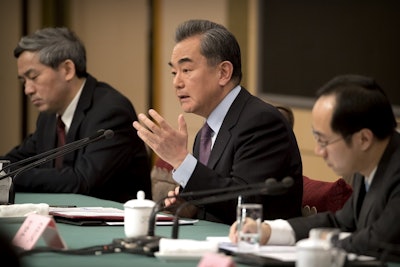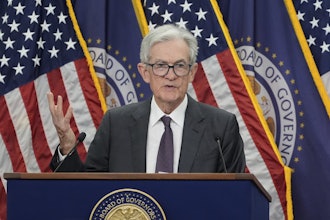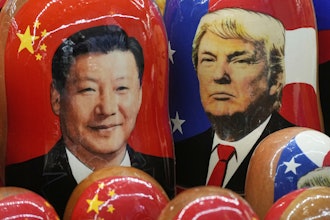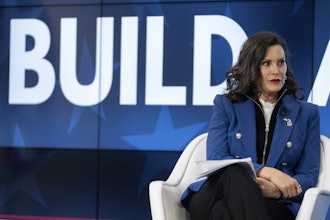
China's foreign minister on Friday promised "all necessary measures" to defend Chinese companies and citizens abroad amid legal clashes between tech giant Huawei and Washington.
Recent legal action against Chinese companies and individuals is "deliberate political suppression," said Wang Yi at a news conference.
Wang was responding to a question about Beijing's stance on Canada's arrest of a Huawei Technologies Ltd. executive on U.S. criminal charges and the company's lawsuit in an American court aimed at overturning restrictions on sales of its telecom equipment.
"Recent actions against specific Chinese enterprises and individuals are not simply judicial cases, but deliberate political suppression," said Wang.
Beijing will take "all necessary measures to resolutely safeguard the legitimate rights and interests of Chinese enterprises and citizens," he said.
"We also support companies and individuals using legal weapons to protect their rights and interests and not to be silent lambs."
China's government has demanded Canada release Huawei's chief financial officer. She is fighting U.S. efforts to extradite her to face charges of lying to banks about dealings with Iran.
Wang gave no details of what Beijing might do, but a Canadian former diplomat and a businessman have been arrested in China in what is widely seen as an effort to pressure Canada.
Authorities also have slowed imports of Canadian canola, an oilseed crop, by imposing more stringent inspections.
Meanwhile, Huawei faces charges including theft of trade secrets in a case in federal court in Seattle. The company pleaded not guilty this month.
On Thursday, Huawei announced it filed a lawsuit asking U.S. federal court to throw out a portion of this year's American military appropriations bill that bars the government from using its technology or dealing with contractors that do.
Huawei argues the measure improperly singles out the company for penalties without giving it a chance to defend itself.
 Chinese Foreign Minister Wang Yi listens to a journalist's question during a press conference on the sidelines of the annual meeting of China's National People's Congress (NPC) in Beijing, Friday, March 8, 2019. Image credit: AP Photo/Mark Schiefelbein
Chinese Foreign Minister Wang Yi listens to a journalist's question during a press conference on the sidelines of the annual meeting of China's National People's Congress (NPC) in Beijing, Friday, March 8, 2019. Image credit: AP Photo/Mark Schiefelbein




















